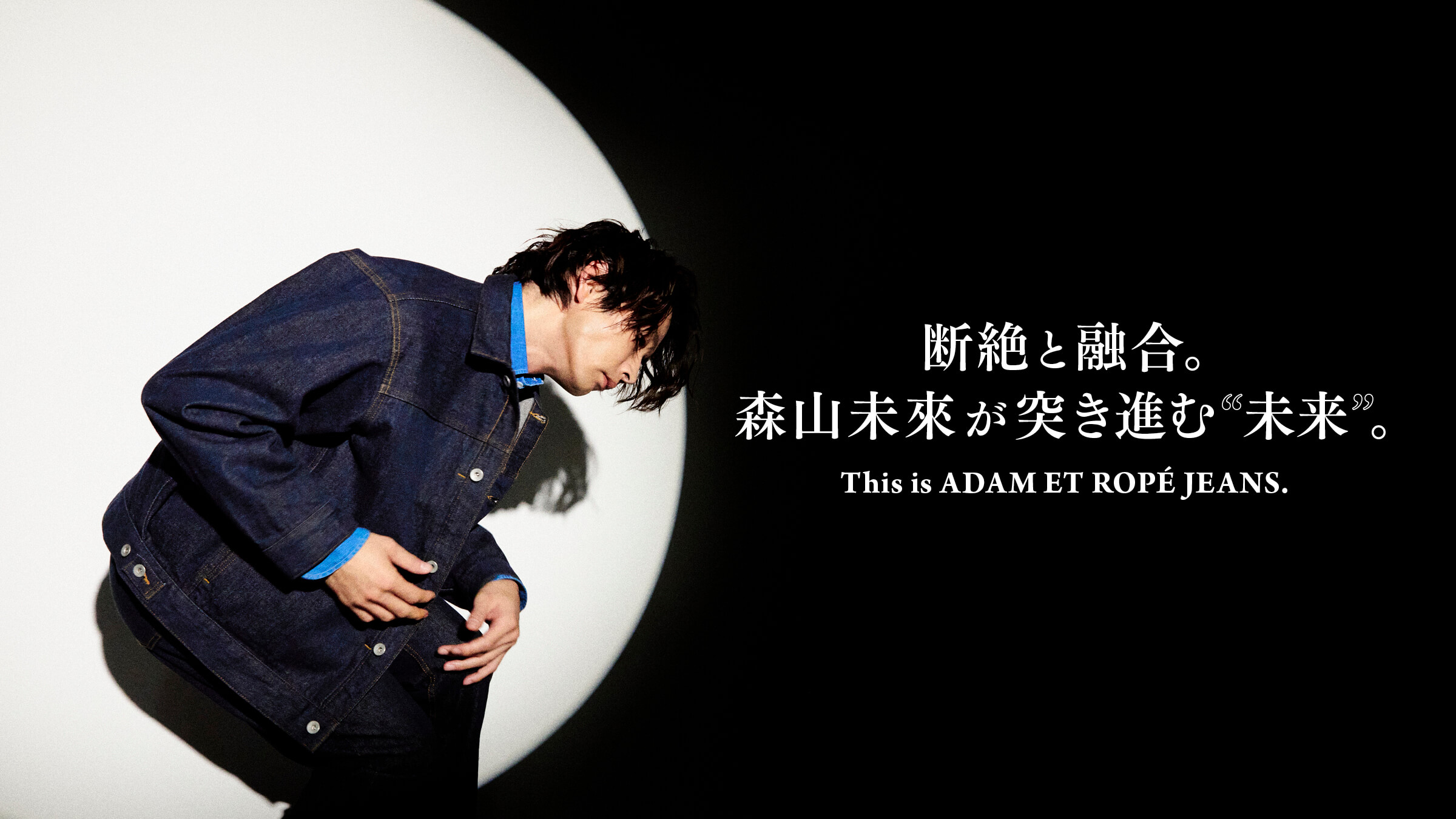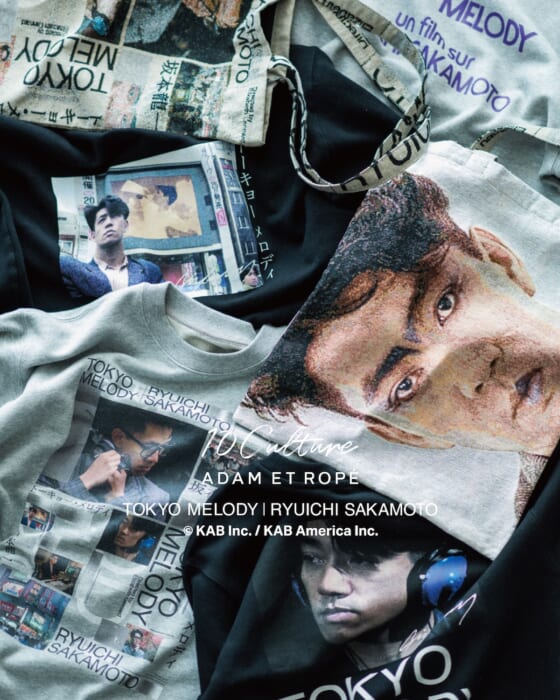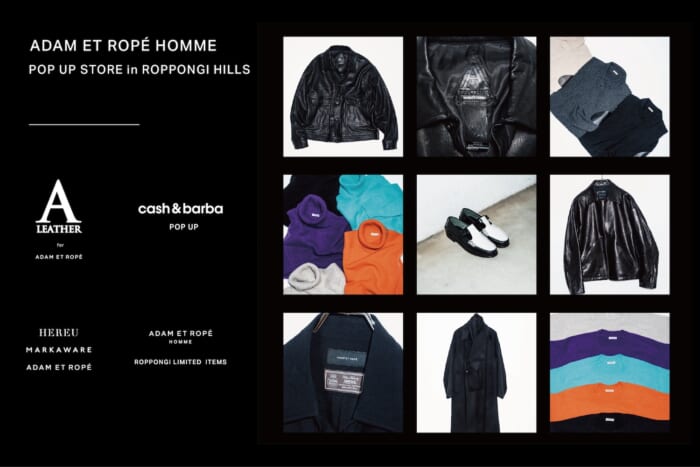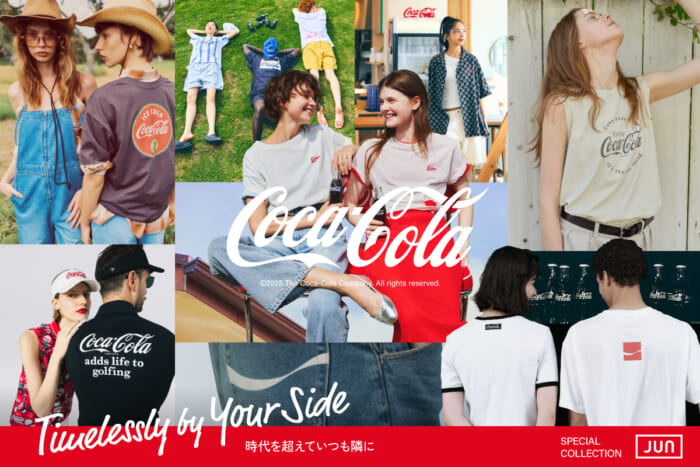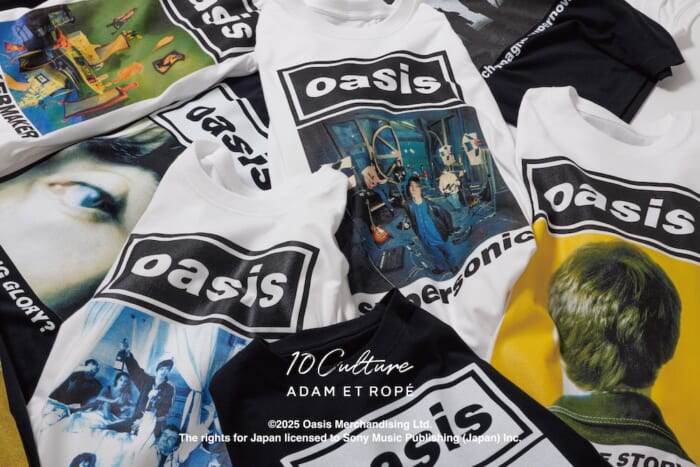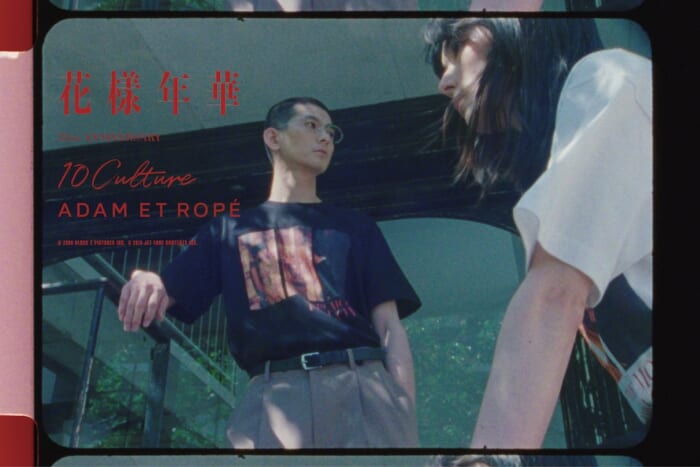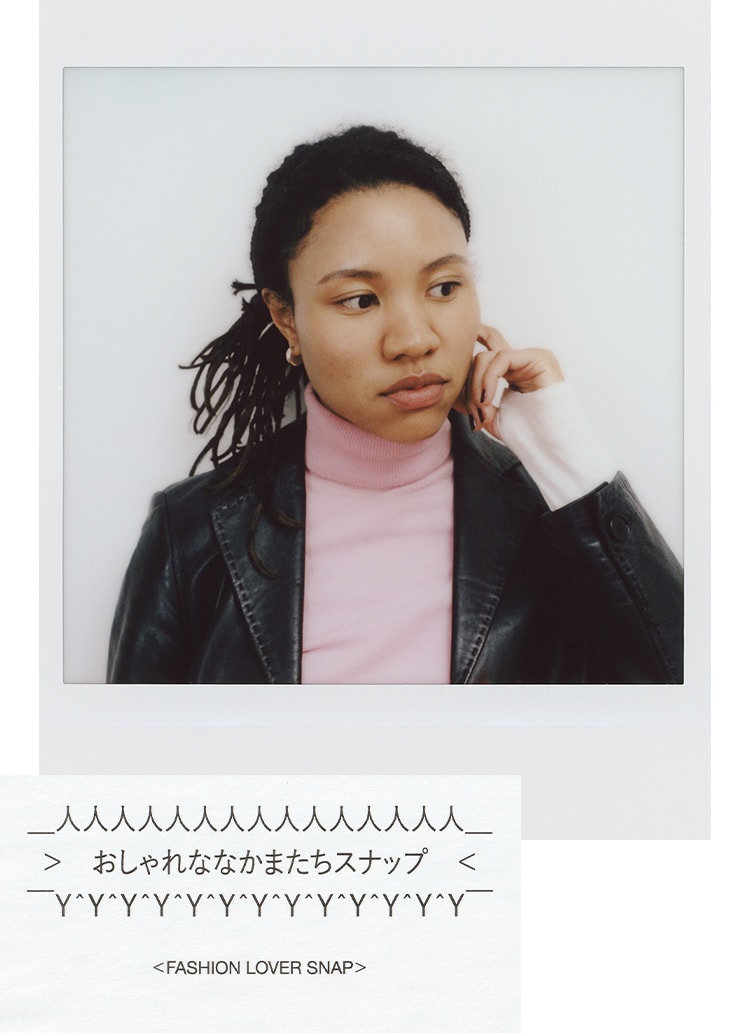Brewing culture and deepening flavor within the country.
After Corona future map.
-Costumes also play an important role in your performances as an actor or dancer.
Moriyama: The concept of today's shoot was to feature denim as the material for my body, but when interpreting costumes for stage and screen, I have my own ideas about the visuals, and the director, director, and costume designer have their own ideas, so the basic premise is that interesting things are created by crossing the stories of each of them. The basic premise is that interesting things are created when the stories of the director, director, and costume designer are crossed with each other.
Layers are created by the opinions of everyone involved in the work. As we work out how the visuals will be integrated into the scenes and situations in the work, the story will gain depth.
In the case of video, I tend to show various aspects of the work from close-up angles, but for stage productions, I tend to show the work as a pull-up picture. While what is shown in each framework changes each time, I always consider how the costumes and the body should look in relation to the concept of the work.
-The shooting this time was a still image, but even in the back view, I could catch a glimpse of the flow of the scene before and after...it was as if Mr. Moriyama was speaking to me.
Moriyama: Thank you very much. That means we had a successful session (laughs).
-As I mentioned earlier, the items in this collection are made of materials blended from waste materials generated in the manufacturing process.
Moriyama: Once you have something in your hands, you become attached to it. And once something has become familiar to you, you will continue to use it for 10 or 20 years. Clothes become shiny like high school uniforms after wearing them for many years, don't they? (Laughs) There are things that I continue to use even after they are in that state without caring.
-Is comfort the deciding factor for you to continue using the product?
Moriyama: Of course, there is also the ease of use and design, but as I live and travel, the "thing" itself becomes one of the elements that make up who I am, and I want to take care of it, including the time I spend with it, beyond the comfort of the clothes. I want to cherish the time I spend with them.
However, for someone who claims to be so good with things, I often lose things (laughs). (Laughs.) Of course, there are certain things that I have to be careful about, such as protecting my credit card and passport when I am abroad.
When it inevitably disappears, I give up, thinking that it was time to say goodbye. In a sense, we can also give up on things by eliminating our attachment to things, saying, "It has to be this way. In a way, I can express myself by eliminating my attachment to things, saying, "It has to be this way," or, "It has to be this way. It's a kind of "obsession" to let go of obsession. I guess I am still very particular (laughs).
-Finally, I would like to ask you a few questions about the future. Do you have any kind of vision for your future activities?
Moriyama: For the past 15 years or so, I have been involved with overseas creators, artists, and writers in the creation of my works, and I have always had the image of doing something overseas, and of course I continue to feel that way today.
However, I am certain that there were things I gained by being in an environment where I was physically unable to leave the country at the time of Corona. I believe that there are cultures that blossom anew through interaction with the outside world, and there are cultures that mature by severing interaction with the outside world. In Japan, it is like the Kokubu culture and Edo culture.
-After the isolation of the country, the Edo culture gave birth to unique Japanese culture such as Kabuki, Joruri and Ukiyoe, didn't it? In addition, the Corona disaster brought about major changes in terms of artistic culture, such as digitalization and the evolution of AI. In the midst of these changes, how did you yourself come to think about expressing yourself?
Moriyama: There was a moment when I became very conscious of "brewing," which is an important part of Japanese culture, under circumstances that made it difficult for me to go outside. In Japan, we tend to refer to ourselves as "Galapagos," and this is often said in a negative nuance, but I wonder if this is really wrong. Conversely, in the current wave of globalization, is it really a good thing for a culture if all things from all over the world are mixed and homogenized?
As for tourism, while the country is making a big push to become a major tourist destination in order to earn foreign currency, there are definitely cultures that are being destroyed by the excessive influx of tourists and the responses to the influx. Therefore, after the Corona disaster, I think it is very important to consider how localization should be perceived and how it should be presented to the outside world.
It is easier now than ever before to communicate with the outside world, so I would like to create products in such a way that "creating something in Japan" itself becomes an interaction with the outside world, rather than thinking that you can't do anything unless you go abroad. I would like to create something in which "creating something domestically" itself becomes an interaction with the outside world. I would like to explore various ways to put this into action in a methodical manner.
-Society is undergoing major changes from the Corona disaster to the Trump era, and this seems to be a turning point for you as well, Mr. Moriyama.
Moriyama: To be honest, if we are to develop the kind of activities discussed above, we cannot talk about them only with those who are involved in culture, and it will be essential to involve a variety of people in addition to creators. We would like to steadily build up our activities while thinking about how we can involve the economy, government, and others in our activities.



